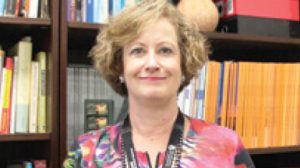Life beyond cancer

Professor Jane Turner
Working in the relatively new discipline of Psycho-Oncology, her key focus is on promotion of wellness after the completion of cancer treatment, the emotional impact of cancer on families and the development and evaluation of sustainable models of improved health care service delivery.
“Clinically, my big interest and research is on families and how parents with advanced cancer talk with their children,” Professor Turner says.
“People who have advanced cancer or are dying don’t need to see a psychiatrist necessarily; they need to see someone who can give them information about how they can talk with their children.”
Professor Turner is currently Chief Investigator in a randomised control trial (RCT) of a nurse-delivered survivorship intervention for patients who have completed treatment for head and neck cancer.
“This is the first RCT of its kind in Australia, and will provide critical data about innovative models of survivorship care that could be implemented internationally,” she says.
“It draws on the principles of chronic disease self-management and promotion of self-efficacy to encourage patients to engage in sustained behaviour change and self-care regarding cancer-related concerns.”
As Chair of the International Psycho-Oncology Society (IPOS) Guidelines Committee, Prof Turner is also focused on developing Clinical Practice Guidelines and
implementing these to guide health professionals in the provision of high quality clinical care.
“A lot of people don’t think of that as research, but clinical practice guidelines are really how to translate the evidence into practice,” she says. “It’s all about the
translation as far as I’m concerned – how we can improve patient outcomes and enhancing the quality of the health professional–patient relationship.”
Prof Turner’s interest in the field provided the impetus for a pilot study in which an educational intervention was developed to enhance the capacity of oncology nurses to provide supportive care for parents with advanced cancer. She will present a workshop on the model of care at the IPOS meeting in Berlin in August 2017.
One factor affecting quality of life post cancer is an inability to move on afterwards. Professor Turner’s recently completed a study into fear of cancer recurrence,
which affects almost half of cancer survivors. The research demonstrated the benefit of a structured manual based intervention.
“Around 40 per cent of people who have had cancer really can’t let it go and it dominates and really affects their quality of life,” she says.
“There have been a number of descriptive studies and some interventions worldwide to look at this, but in this big multi-site Australian study, a number of Metro North staff contributed to the training manual, and training therapists, as well as delivering the intervention and that’s quite exciting.”
The research will be presented at the American Society of Clinical Oncology annual meeting in 2017 and has been accepted into the Society’s press program, a distinction given to less than one per cent of meeting abstracts.
